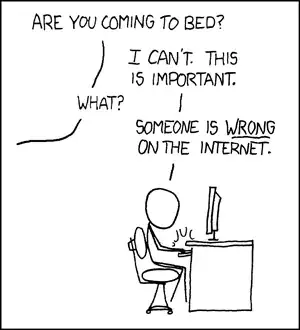The answer depends on how you define all the key terms, especially "technology" and "addiction".
Probably the closest thing to an official definition of addiction can be found in the American Psychiatric Association's Diagnostic and Statistical Manual of Mental Disorders, last updated to version 5 in 2013. The list of addictions contains substance addictions and gambling addiction. On this grounds, the answer would be: No, there are no universally recognized addictions caused by new technology.
However, the decision not to include things like internet addiction and computer addiction into the list was controversial. Opinions such as "Internet addiction appears to be a common disorder that merits inclusion in DSM-V", in an editorial in the American Journal of Psychiatry, were (and are) widespread. You can go through the references and you will see: There are many mainstream researchers who consider new technologies such as computers and the internet to be able to produce addiction. The same holds for addiction in children/adolescents (some examples). However, note that mainstream researchers do not claim that any, or even some specific large amount of technology use is sufficient to cause (or constitute) an addiction; one can spend 12 hours a day in front of a computer and still not meet the addiction criteria. Also, the consensus (and the reason those addictions are not yet official) seems to be that "Carefully controlled studies are required to settle these controversies [about the status of internet addiction]".

As an aside: There are many definitions of addiction. As a represantative and relatively short example, here's one from the American Society of Addiction Medicine:
Addiction is a primary, chronic disease of brain reward, motivation, memory and related circuitry. Dysfunction in these circuits leads to characteristic biological, psychological, social and spiritual manifestations. This is reflected in an individual pathologically pursuing reward and/or relief by substance use and other behaviors.
Addiction is characterized by inability to consistently abstain, impairment in behavioral control, craving, diminished recognition of significant problems with one’s behaviors and interpersonal relationships, and a dysfunctional emotional response. Like other chronic diseases, addiction often involves cycles of relapse and remission. Without treatment or engagement in recovery activities, addiction is progressive and can result in disability or premature death.
Finally, there is perhaps the more important question of what constitutes technology, what you mean with the broader "negative effects", and whether these negative effects are really that bad. A favourite article of mine lists, among others, the following concerns with new technology:
- exhaustion of children's brains and nervous systems
- social isolation
- the mental confusion and actual harm produced by information overload
- the loss (from disuse) of memory and the inability to distinguish
fact from fiction, especially for children
The corresponding culprit technologies, all new back then, are schools, newspapers, printing, and - from Socrates - writing itself.
To conclude on a personal note: I find at least some of the claims probable. It seems to make sense that writing diminishes our exercise, and therefore mastery, of memory. I certainly remember less phone numbers than I did before the age of mobile phones and ubiquitous contact directories. I also know a few people who might well have a reading addiction, or - worse - a writing addiction. But do we really want to give up writing, just to be able to remember things we do not need to remember any more if we do write?
